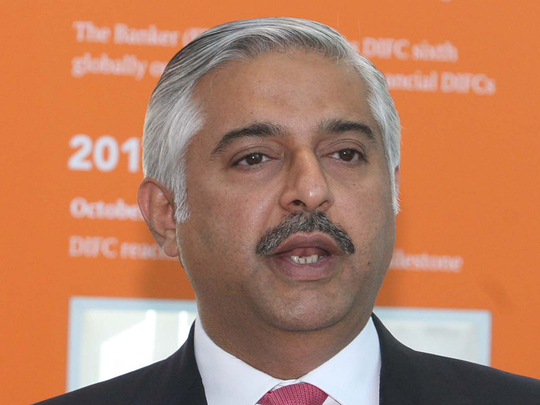
Dubai: Standard Chartered said on Tuesday that Mohsin Nathani, the UAE CEO of the bank, has resigned to take a career break.
Nathani’s resignation comes barely a week after resignation of Viswanathan Shankar, the Dubai-based head of its business in Europe, the Middle East, Africa and the Americas as the emerging markets focused bank continues to shake up its top leadership.
Nathani initially joined Standard Chartered in 2010 as CEO for Pakistan, building a strategy which positioned the bank for growth and firmly placed Standard Chartered as the leading international bank in the country. Subsequently, he took on the role as UAE CEO, which is one of the bank’s top five markets.
“It has been a privilege and great experience for me to be the CEO of Standard Chartered UAE, and I’ll leave with fond memories. The bank has an excellent client base and I’d like to express appreciation to them for their loyalty to the organisation,” Nathani said in a statement.
Nathani’s resignation from Standard Chartered comes at a time when the bank is going through a top-level management overhaul in which chairman Sir John Peace, chief executive Peter Sands and Asia chief Jaspal Bindra have announced their resignations.
The bank has appointed Bill Winters, a former JPMorgan investment bank to succeed Sands.
Nathani will remain at the bank during his notice period and will ensure a smooth transition to a successor, the bank said in an emailed statement.
The bank has been facing shareholder pressure for management changes following poor performance during the last two years after more than a decade of strong profit growth across all markets it operates. It reported a 37 per cent decline in net profit in 2014, down to $2.51 billion (Dh9.22 billion) from $3.99 billion in 2013.
The bank saw intense pressure on margins and volume, a significant uptick in impairments and a sharp increase in regulatory-related costs last year.
In the Middle East too, revenues and earnings were down compared to last year. While operating income fell $22 million, or 1 per cent, to $1.84 billion, client income fell 2 per cent across the region.
“Strong performances in our markets across the region have largely offset a softer performance in the UAE. Continued spread compression as a result of the low volatility [and a] low interest rate environment offset good levels of customer activity in [foreign currency] and rates,” the bank said its annual report.












